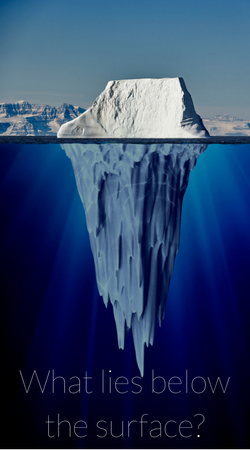A guest post by Craig Chalquist, Ph.D.
 Depth Psychology and the contributions of Sigmund Freud and C.G. Jung.
Depth Psychology and the contributions of Sigmund Freud and C.G. Jung.
As outlined in Pacifica’s definition, depth psychology is an interdisciplinary body of psychological practices and traditions that study the interactions between conscious and unconscious. Psychiatrist Eugen Bleuler coined the term in 1910 to describe psychoanalytic approaches to therapy and research.
The question of who founded the field is more complex than the usual answer: Sigmund Freud and C.G. Jung, both interested in exploring what pulses and simmers below our customary awareness. In France, Pierre Janet coined “subconscious” to describe the inner roots of psychological symptoms without apparent biological causes. One of his patients wept a lot without knowing why. She had never mourned the loss of two loved ones. Finding this out alleviated her symptoms.
Janet, who saw the mind as an arena of interacting forces of fantasy, memory, and emotion, developed an early form of trauma theory, worked with his patients’ projections of early conflict onto him, took extensive case histories, and created a method for collecting what Freud would call “free associations” as hints of underlying conflict. Janet’s “psychological analysis” helped patients finish the unfinished and untold stories they carried around through life.
Freud and Jung extended these practices, with Freud exploring the structure of the personality and Jung the psyche’s latent possibilities for creativity, wholeness, and healing. Both evolved forms of reflective listening and interpretation to encourage a fuller emergence of complexities and capacities waiting in the depths for activation. Jung placed particular emphasis on imagination for integrative attunement to the interior depths as well as to one’s surroundings, including relations with other people. Contemporary depth psychology has moved beyond rather hydraulic descriptions of these relations in favor of models based on networks, systems, and fields.
Although depth psychology began as a European project, its roots and influences reach across cultures and far back in time. Dreams, fantasies, and associations reported by people today often resemble those accessed by ancient shamans. Wisdom traditions like alchemy are packed with such imagery, as are all mythologies and folktales. The Oracle at Delphi gave advice in symbolic utterances. The Upanishads reach far and deep into the structures of consciousness, as do the texts of various Western, African, and Asian mystics. In the 4th century BCE, Aesara of Lucania, perhaps the first of all depth psychologists, wrote in On Human Nature that the dynamic psyche paralleled the dynamics of society. In China, the ancient Jixia Academy assembled Daoist and Confucianist scholars and offered programs in “interior training.” Gnosticism’s emphasis on deep psychological reflection sprouted in Alexandria and spread out. In Baghdad, Sufi scholarship gathered at the House of Wisdom. Philosopher Muhammad ibn Umail wrote tomes on psychological alchemy. In Europe, Romantic philosophers like Schelling and Goethe and, before them, Blake used art and reverie to explore images and movements arising in the collective depths.
More recently, depth psychologists trained in Freudian and Jungian approaches include Lou Andreas-Salomé (praised by Freud as “the best of us”), Karen Horney, Hans Loewald, Harry Stack Sullivan, Toni Wolff, Emma Jung, Marie-Louise von Franz, Edward Edinger, James Hillman, and hundreds of other theorist-practitioners, all devoted to tending the mysteries just beyond the circle of everyday awareness.
The Depth Psychology Alliance founded by Pacifica alumnus Bonnie Bright has posted a panel discussion on the nature of depth psychology as well as a short video to describe the field.
 Craig is Associate Provost at Pacifica Graduate Institute. He earned his Ph.D. in Depth Psychology at Pacifica Graduate Institute and also holds a Master Gardener certificate and another in permaculture design. He is the author of Terrapsychology: Reengaging the Soul of Place (Spring Journal Books, 2007) and co-editor with Linda Buzzell, MFT, of Ecotherapy: Healing with Nature in Mind (Sierra Club Books, 2009). Craig was core faculty in East-West Psychology at the California Institute of Integral Studies and former core faculty at John F. Kennedy University, where he served as acting department chair (Consciousness & Transformative Studies), designing and launching the world’s first ecotherapy certificate. He also is founder of Immanence Myth Journal http://www.immanencejournal.com
Craig is Associate Provost at Pacifica Graduate Institute. He earned his Ph.D. in Depth Psychology at Pacifica Graduate Institute and also holds a Master Gardener certificate and another in permaculture design. He is the author of Terrapsychology: Reengaging the Soul of Place (Spring Journal Books, 2007) and co-editor with Linda Buzzell, MFT, of Ecotherapy: Healing with Nature in Mind (Sierra Club Books, 2009). Craig was core faculty in East-West Psychology at the California Institute of Integral Studies and former core faculty at John F. Kennedy University, where he served as acting department chair (Consciousness & Transformative Studies), designing and launching the world’s first ecotherapy certificate. He also is founder of Immanence Myth Journal http://www.immanencejournal.com



